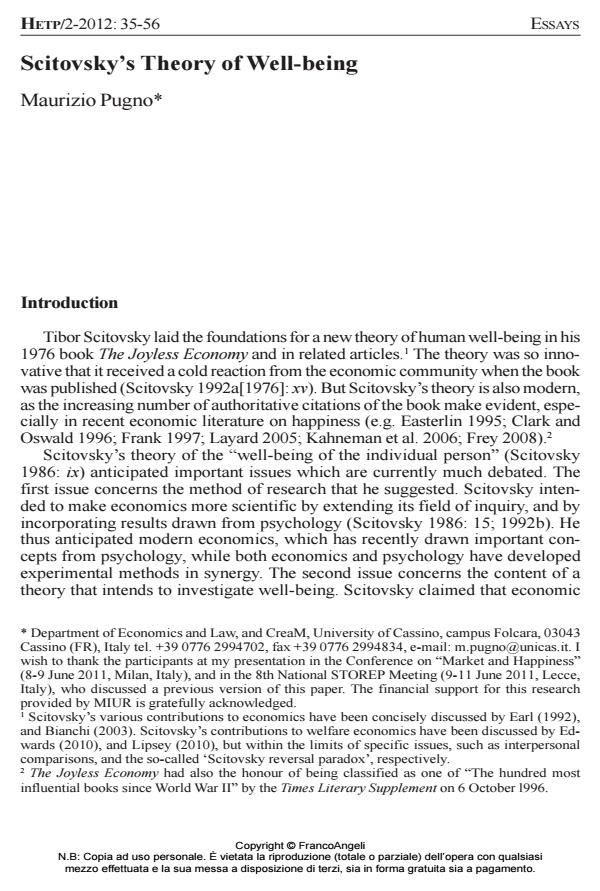Scitovsky’s Theory of Well-being
Titolo Rivista HISTORY OF ECONOMIC THOUGHT AND POLICY
Autori/Curatori Maurizio Pugno
Anno di pubblicazione 2012 Fascicolo 2012/2
Lingua Inglese Numero pagine 22 P. 35-56 Dimensione file 117 KB
DOI 10.3280/SPE2012-002002
Il DOI è il codice a barre della proprietà intellettuale: per saperne di più
clicca qui
Qui sotto puoi vedere in anteprima la prima pagina di questo articolo.
Se questo articolo ti interessa, lo puoi acquistare (e scaricare in formato pdf) seguendo le facili indicazioni per acquistare il download credit. Acquista Download Credits per scaricare questo Articolo in formato PDF

FrancoAngeli è membro della Publishers International Linking Association, Inc (PILA)associazione indipendente e non profit per facilitare (attraverso i servizi tecnologici implementati da CrossRef.org) l’accesso degli studiosi ai contenuti digitali nelle pubblicazioni professionali e scientifiche
Scitovsky laid the foundations for a new theory of people’s well-being in his 1976 book The Joyless Economy. This paper, after a reconstruction of Scitovsky’s analysis throughout the book and his related writings, shows that supporting evidence can be found in recent economic and psychology literature. Secondly, the paper shows how Scitovsky’s theory helps understand the partial nature of economic welfare with respect to human welfare, and the widening gap between the two, which is also recently known in the version given by Easterlin. Thirdly, the paper proposes reconciliation, based on Scitovsky’s theory, between the hedonic and eudaimonic approach to happiness, recently taken up, respectively, by Kahneman and Sen.
Parole chiave:Scitovsky, well-being, happiness, economics and psychology, consumption
Jel codes:A12, B31, D11, D60, J2
- The Magic of Storytelling: How Curiosity and Aesthetic Preferences Work Marina Bianchi, in Economics 20140044/2014
DOI: 10.5018/economics-ejournal.ja.2014-44
Maurizio Pugno, Scitovsky’s Theory of Well-being in "HISTORY OF ECONOMIC THOUGHT AND POLICY" 2/2012, pp 35-56, DOI: 10.3280/SPE2012-002002